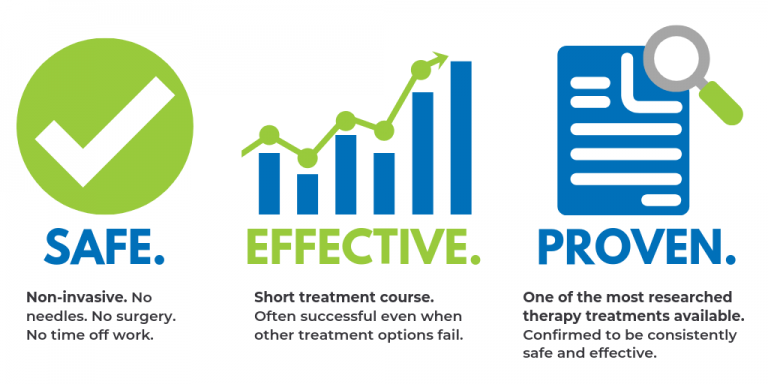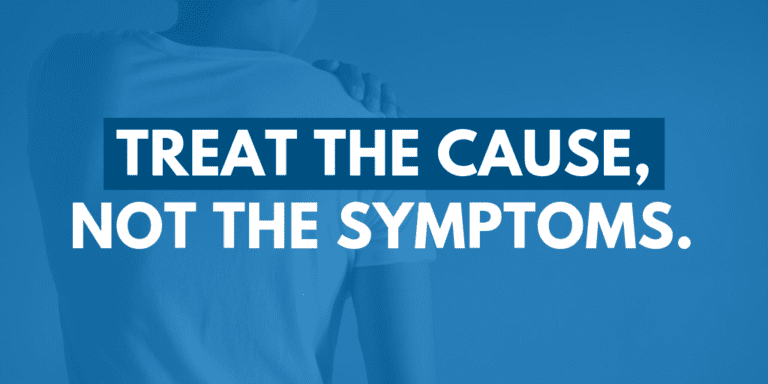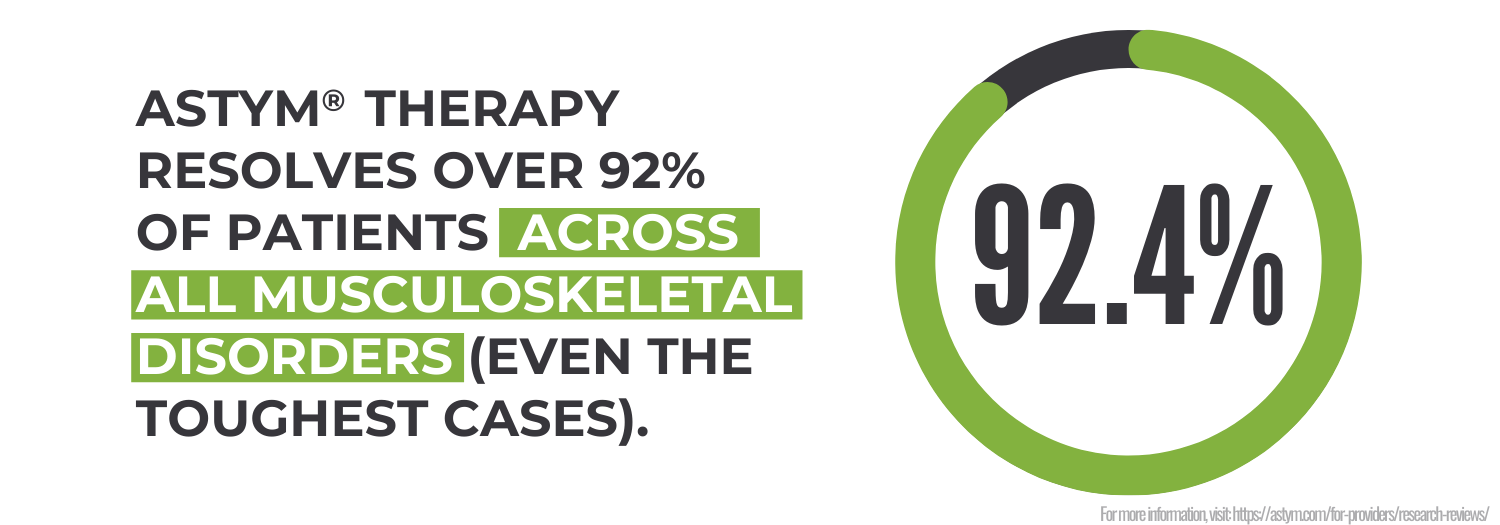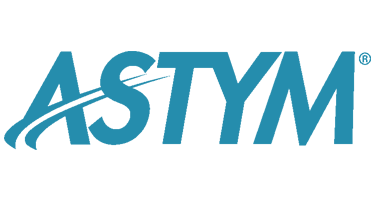
08 Oct When Should You See an Astym Certified Therapist?
Astym® therapy has helped many individuals recover from a variety of conditions as well as, relieve pain, restore function, and regain range of motion. Before deciding on any treatment, we always recommend consulting with a trusted healthcare provider. It’s important to be properly evaluated and talk with them before deciding on a course of treatment.
If you’ve been wondering when to seek out help, we have a simple answer for you.
Do you have any of the following symptoms?
-
- Restricted Motion
- Consistent Tightness
- Pain with Movement
- Joint Stiffness
- Tendinitis
- Soreness from a Sprain or Strain
If you answered yes to one or more of these symptoms, you could be a good candidate for Astym therapy!
Why Astym Therapy?

Astym therapy helps you get better faster with a safe and effective approach to treating your pain. On average, an Astym treatment session is around 15-30 minutes depending on your injury or condition and most conditions resolve after 4-5 weeks of treatment and therapy.
Astym Certified therapists treat the cause, not just the symptoms of your pain. Astym therapy can resolve tough injuries and conditions, even when other treatments have failed.

With Astym therapy, you’re offered a trusted treatment plan that’s proven to work fast and give you lasting results. With over 10,000 independently recorded patient cases, Astym therapy resolves over 92% of patients across all musculoskeletal disorders (even the toughest cases).

We believe everyone deserves to live pain-free no matter their injury or condition. Talk with an Astym Certified provider today to see if Astym therapy is right for you.
Want to know some of the specific conditions Astym therapy is great at treating? Check out this list!
-
- Achilles Tendinopathy
- Anterior and Posterior Tibialis Tendinopathy
- Arthrofibrosis
- Carpal Tunnel Syndrome
- Chronic Ankle Pain and Stiffness
- Chronic Wrist Pain and Stiffness
- DeQuervain’s Tenosynovitis
- Golfer’s Elbow (Medial Epicondylopathy)
- Hamstring Strain
- IT Band Syndrome
- Jumper’s Knee
- Low Back Pain (nonradicular)
- Patellar Tendinopathy
- Plantar Fasciitis (Plantar Fasciopathy)
- Post-Mastectomy Scarring
- Post-Surgical Scarring/Fibrosis
- Rotator Cuff Tendinopathy
- Scar Tissue/Fibrosis
- Tennis Elbow (Lateral Epicondylopathy)
- Trochanteric Bursitis
* Before deciding on any treatment, we always recommend consulting with a trusted healthcare provider. It’s important to be properly evaluated and talk with them before deciding on a course of treatment.




